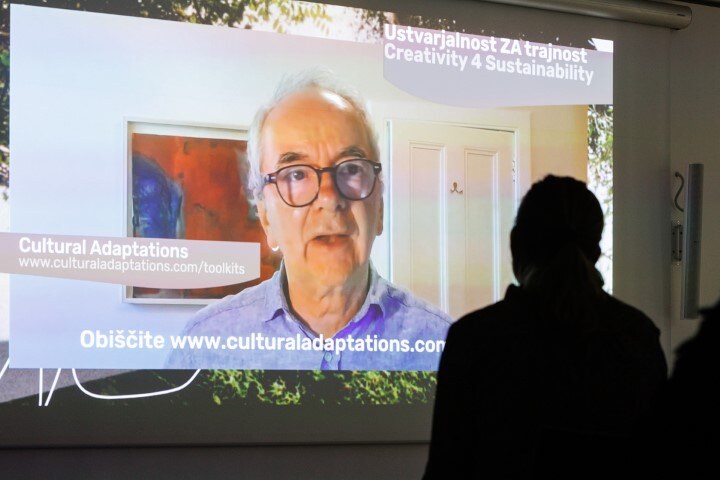He assured us that arts and artists are crucial because they can make people think collectively and build community in the process. While he acknowledges the sensitivity around “issue-based art”, he believes all great art has been produced to forward one end or another, stating, “the best artists have always responded imaginatively to the greatest questions of their time”. For Ben, climate change is not about understanding what changes are happening in the climate, but about us changing our metaphorical climate: Culture’s influencing capacity can change the (metaphorical) climate through changing the stories that we watch and hear and tell ourselves.
Ben also talked about what we can concretely do in our cultural institutions regarding how we manage our physical spaces and our production and presentation practices. Everyone can be a leader in this regard:
- Monitor and reduce our organisational heating and cooling usage.
- Understand who makes the decisions around energy usage in our spaces and figure out when what is running and why. Programming and operational needs should be aligned with sustainability!
- Maintain our buildings and venues to run efficiently.
- Lower emissions from travel and transport where possible and consider who travels where and why.
- Have internal staff track their emissions on their expense claims (e.g., www.claimexpenses.com).
- Look at our audience’s emissions to/from events, what new practices can be implemented?
- Try to move certain activities to a different season to minimise energy use (and costs) and maximise impact (better working conditions, low-energy comfort for audiences, minimised disruptions from adverse weather).
- Consider how our venues can be a “place of refuge” for our communities during extreme weather.
- Go deeper into examining our audience’s practices and promote a change in the climate in that regard. We might even lower the negative aspects of cultural tourism (as in the case of Edinburgh).
- Tell the stories of sustainability with our actions and our words.
Such practices can lead to a more (g)rounded way of seeing arts and culture, especially in terms of their social and environmental impact(s) as builders of community, providing much needed alternatives to (just) measuring every kilo of carbon.
Watch Ben´s key note on our YouTube channel.
Read Forum´s FULL REPORT “Key points from the international Creativity 4 Sustainability Forum (Ljubljana, 28 September 2022)” that includes:
* what we can concretely do in our cultural institutions,
* messages for policymakers and funders,
* what we can do to work more sustainably.
Creativity for Sustainability Forum recording is available here.
The Forum was organized by Motovila in cooperation with the City of Ljubljana, Ministry of Culture of the Republic of Slovenia, the European Commission, Ecologists without Borders, Creative Europe Desks Portugal and Austria, On the Move, Museum & Galleries of Ljubljana (Cukrarna gallery), Ljubljanski potniški promet (Ljubljana Passenger Transport). Special thanks to the European Capital of Culture Nova Gorica 2025.











